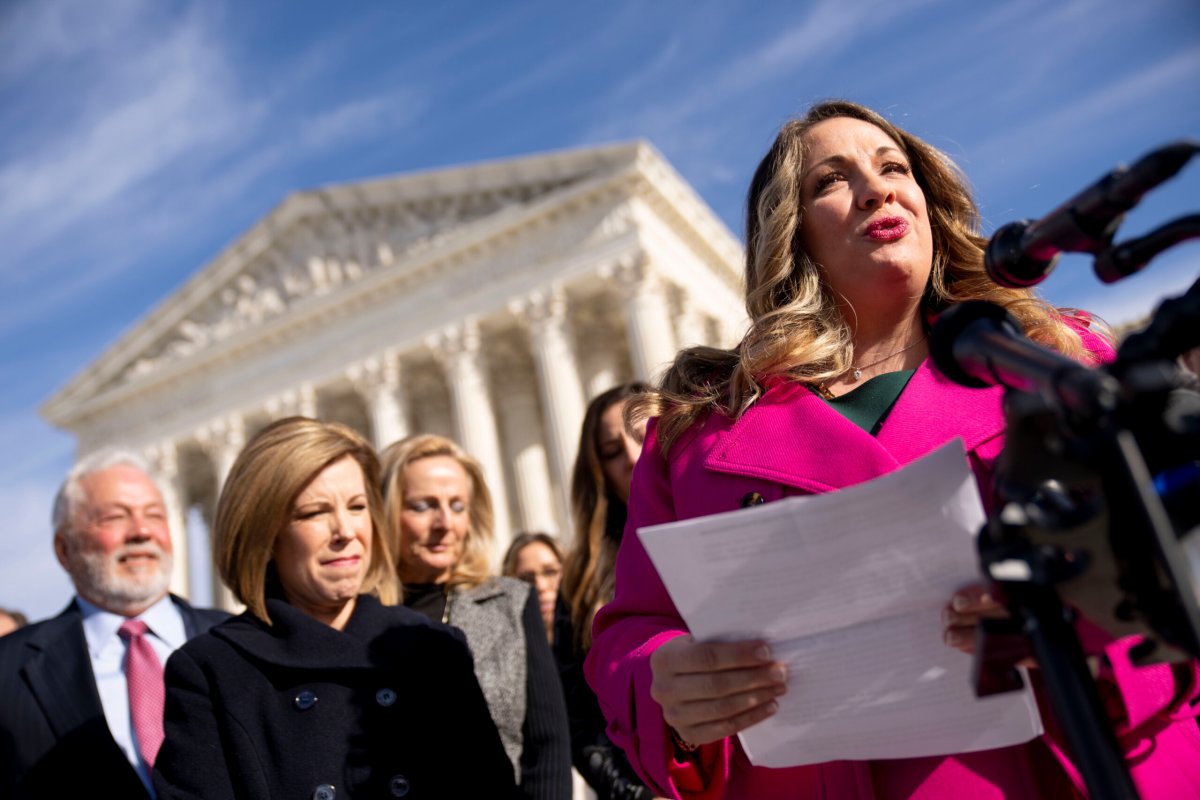The US Supreme Court ruled on June 30 that Lorie Smith, a Colorado website designer doing business as 303 Creative, LLC, has a right under the First Amendment’s Freedom of Speech Clause to refuse to design wedding websites for same-sex couples, even though a Colorado statute provides that businesses may not discriminate among customers based on their sexual orientation.
Justice Neil Gorsuch’s opinion was joined by five other members of the Court, Chief Justice John Roberts and Associate Justices Clarence Thomas, Samuel Alito, Brett Kavanaugh, and Amy Coney Barrett, all conservative appointees of Republican Presidents. Justice Sonia Sotomayor authored a dissenting opinion, joined by Justice Elena Kagan and Ketanji Brown Jackson, progressive appointees of Democratic presidents.
This result was widely expected among those who listened to or read the transcript of the oral argument held by the court on December 5, and it was consistent with recent decisions by the court finding expansive protection for free exercise of religion and freedom of speech. In this case, although the Court’s grant of review was limited to Smith’s freedom of speech claim, the speech at issue was based on her religious beliefs, and she had asked the court to rule on a free exercise claim as well. With no explanation, the court granted review only on the free speech claim.
The decision reversed a ruling by the Denver-based US Court of Appeals for the 10th Circuit, which had ruled that although the case implicated “pure speech,” Colorado’s “compelling interest” in preventing discrimination against LGBTQ people was strong enough to overcome Smith’s free speech rights, as there was no less intrusive way for Colorado to achieve its non-discrimination goal.
Justice Gorsuch’s opinion agreed with the 10th Circuit that producing a website, as described in the stipulated facts in this case, did involve “pure speech” by the website designer, but insisted that a clash between constitutional free speech rights and statutory anti-discrimination policies must be settled in favor of the constitutional free speech rights.
At the time this lawsuit was filed, Smith had never provided wedding website services to customers. Her claim was that she wanted to expand her business to including wedding services, but because of her Christian religious beliefs about marriage she did not want to have to provide these services to same-sex couples. The Colorado statute prohibited not only discriminating in business transactions but also announcing in advance a policy of discriminating. If Smith expanded her business, she wanted to be able to state on the business’s website that marriage services would be limited to different-sex couples because of the owner’s religious beliefs. She wants to conduct her business consistent with her religious beliefs. She claimed that she was deterred from expanding into the marriage website business out of fear of prosecution, which could subject her to fines and other remedial measures.
The lawsuit sought a declaration from the federal court that the First Amendment would protect her against enforcement of the statute. Smith sued Aubrey Elenis, then chair of the Colorado Civil Rights Commission, and the other commissioners, seeking an injunction to protect her from enforcement of the statute. The federal district court in Denver concluded that Smith was seeking an advisory opinion and thus lacked standing to bring the case. The 10th Circuit, citing the precedent of the Masterpiece Cakeshop litigation against Jack Phillips, the baker who refused to make a custom-designed wedding cake for a same-sex couple, concluded that Smith’s fear of prosecution was real enough to create a “case or controversy,” so it reversed the district court’s dismissal, but eventually ruled against Smith on the merits.
Among the stipulated facts making up the record in this case is that Smith is happy to provide website design services for LGBTQ people, so long as they don’t involve same-sex marriages, due to her religious beliefs and her feeling that the custom websites she would design would express her approval of same-sex marriages. In the stipulated facts, she described the website design as an interactive process with the couple that would result in a custom product celebrating their marriage. Since her religious beliefs denied that same-sex marriages are valid, she asserted that designing such a website would be compelling her to speak against her own beliefs.
Gorsuch’s opinion for the majority of the Court relied heavily on two major losses for gay litigants in public accommodation cases, Hurley v. Irish-American Gay, Lesbian and Bisexual Group of Boston (GLIB) (1995) and Boy Scouts of America (BSA) v. Dale (2000).
In Hurley, the court held unanimously that the organizers of Boston’s Saint Patrick’s Day Parade had a First Amendment right to exclude GLIB from the parade, as the organizers did not want their parade to incorporate an LGBTQ rights message. The court’s decision characterized the parade as an expressive activity, reversing the Massachusetts Supreme Judicial Court’s ruling that the parade organizers were violating the state’s public accommodations law. The court held that the government could not compel an organization running an expressive activity to include messages that they did not wish to include.
The court relied on Hurley case in ruling in favor of BSA, which was sued by James Dale under New Jersey’s public accommodations law. Dale had been an assistant scoutmaster, but was dropped from BSA membership after a newspaper reported on a public program in which Dale was a spokesperson for the LGBTQ student group of Rutgers University. BSA claimed to be an expressive association, and argued that as such it had a First Amendment right to exclude somebody whose presence would send a message that BSA did not want to include in its expressive activities. The New Jersey Supreme Court’s decision in Dale’s favor was reversed by the US Supreme Court. The Court was divided 5-4, with several dissenting opinions rejecting the contention that Dale’s mere presence as an out gay man would violate BSA’s expressive rights.
Justice Gorsuch also relied on the Court’s opinion in West Virginia Board of Education v. Barnette, a 1943 decision in which the Court held that schoolchildren with religious objections to reciting the Pledge of Allegiance could not be disciplined for doing so, because the First Amendment prevented the government from compelling their speech.
Taking these precedents and some others together, the court declared that Colorado could not compel Lorie Smith to express approval of same-sex marriages by designing same-sex marriage websites. He wrote that Colorado “seeks to use its law to compel an individual to create speech she does not believe.” Justice Gorsuch found that the 10th Circuit’s conclusion that this case was about pure speech “flows directly from the parties’ stipulations” as to the facts. Gorsuch argued that accepting the 10th Circuit’s ruling against Smith would severely undermine the First Amendment free speech rights of anybody who is selling a speech-focused service in the public marketplace.
Justice Sotomayor’s dissenting opinion did not embrace the 10th Circuit’s analysis. To her, the statute was regulating the conduct of business transactions, with an incidental effect on speech in this sort of case. She focused on the history and importance of public accommodations laws in preventing discrimination in the public marketplace. She emphasized, for example, that Hurley, BSA v. Dale, and Barnette did not involve sales of goods or services by commercial businesses, and that there is a long tradition in American law, predating the passage of modern public accommodations statutes, imposing a common law obligation on various kinds of businesses selling public services and accommodations to refrain from discrimination.
The dissent pointed out that despite the majority’s attempt to make their ruling appear narrow by focusing on vendors of speech-like services, the underlying issue of “endorsement” at the heart of Smith’s objections to designing same-sex marriage websites could easily be extended to other scenarios and other types of discrimination. Would Smith also have a First Amendment right to refuse to design wedding websites for mixed-race couples, if her religious beliefs opposed interracial marriages? Justice Sotomayor noted that the Virginia courts cited biblical text in upholding that state’s ban on interracial marriages, which was subsequently struck down by the Supreme Court in Loving v. Virginia. She also noted that the public accommodations provisions in Title II of the 1964 Civil Rights Act had taken priority over religious objections of some hotel and restaurant owners in the south who believed that racial segregation was divinely inspired.
The court’s acceptance of Smith’s argument that this is a compelled speech case could easily spread to other kinds of discrimination. The Court provided no bright-line test for determining whether particular goods or services implicated enough of a speech component to bring the “endorsement” issue into play.
“Today is a sad day in American constitutional law and in the lives of LGBT people,” wrote Sotomayor. “The Supreme Court of the United States declares that a particular kind of business, though open to the public, has a constitutional right to refuse to serve members of a protected class. The Court does so for the first time in its history. By issuing this new license to discriminate in a case brought by a company that seeks to deny same-sex couples the full and equal enjoyment of its services, the immediate, symbolic effect of the decision is to mark gays and lesbians for second-class status. In this way, the decision itself inflicts a kind of stigmatic harm, on top of any harm caused by denials of service. The opinion of the court is, quite literally, a notice that reads: ‘Some services may be denied to same-sex couples.’”



































